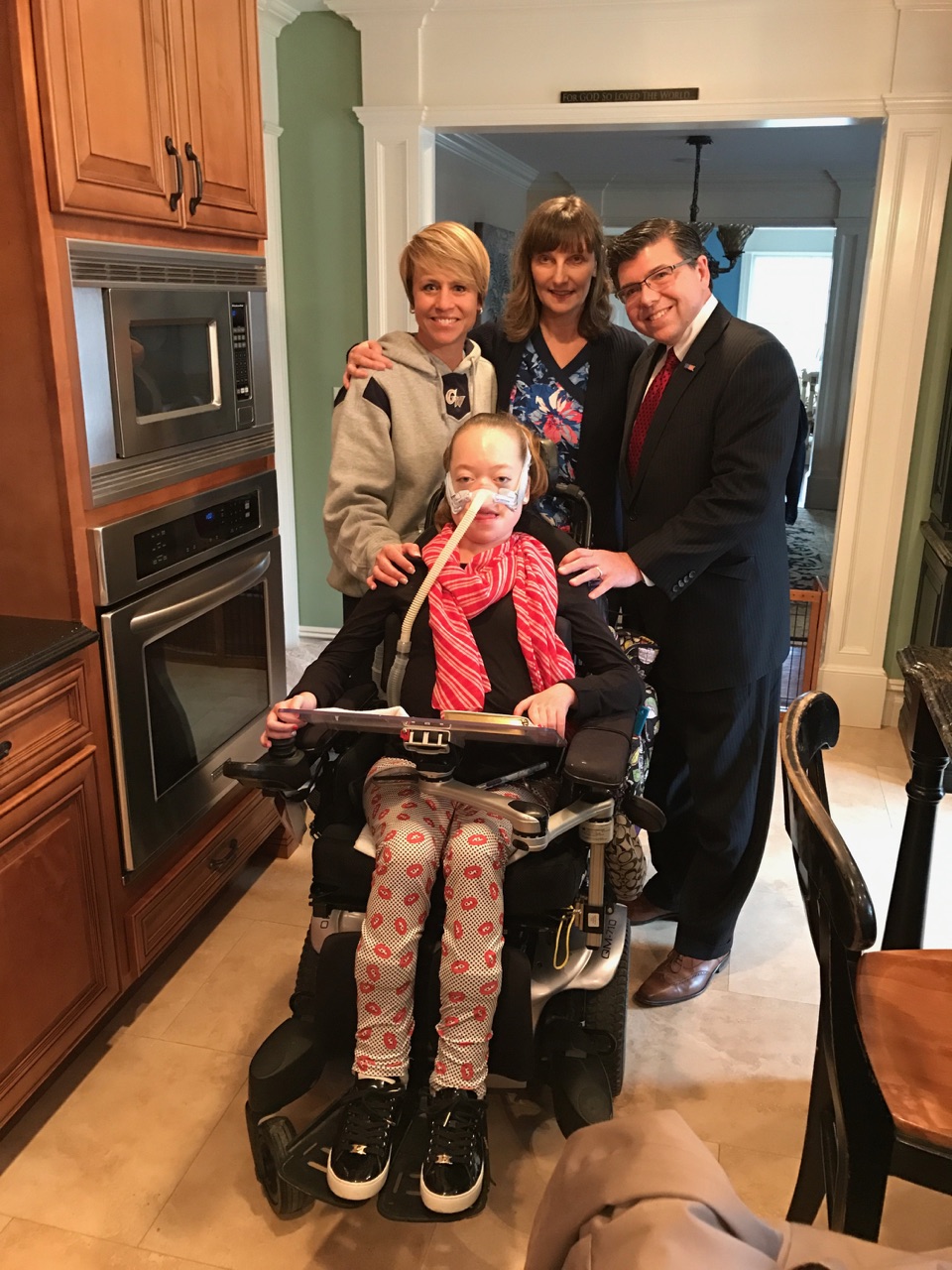
Client advocacy matters more than that of home care industry professionals. While home care professionals can share facts and figures about home care with legislators, it is clients’ stories that truly paint the picture of what home care means to legislators’ constituents.
Whether a home care client is an infant, senior, or any age in-between, it is very likely that the nursing or aide services that they rely on is from a Medicaid or Medicare program. What this means is that government officials are the ones making the decisions on care regulations and reimbursement rates rather than those who are regularly affected by home care. Home care providers must accept these rates and regulations and provide care to the best of their abilities based on what the government has set forth rather than on what is actually best for clients and their families.
Home care employees regularly see that many of the government reimbursement rates for home care are low and have not been increased in years. This has a domino effect in that if providers can’t bring more revenue in, they can’t pay higher rates to attract more staff to care for current clients or for new clients who will need care in the future.
Many areas of our country are starting to age and will need caregivers to allow people to live in their homes instead of in facilities, yet projections indicate fewer people want to be professional caregivers due to the industry’s low wages. Additionally, more nurses are choosing employment in other types of settings, which makes it difficult for many home care clients to have adequate nursing coverage because facilities such as hospitals can pay nurses a higher wage.
As elections come and go, we see changes in our government leaders and with these changes come the possibility of healthcare policy changes. These changes can be sudden and unpredictable, and these changes often threaten funding cuts to important programs such as Medicaid or Medicare. Any funding cuts to these programs would be devastating to home care providers and to program beneficiaries.
The interesting thing is that the representatives and senators who we vote for at the state and federal level make these decisions, and few of them have strong healthcare backgrounds. In addition, it is their job to represent all of the people from their respective districts to the best of their abilities. While provider employees can share their voices through legislative meetings, clients’ and their family members’ advocating and sharing their stories matter most.
Clients who benefit from home care and their family members have their own special stories to tell. As the end https://www.heartsforhomecare.com/wp-content/uploads/2022/11/Home-Care-Moms.jpgs of nursing and aide services, clients and family members have the first-hand knowledge of how the Medicaid and Medicare programs are working and what could be done to improve them. Clients names, faces, and shared stories paint a far more detailed picture of home care than industry professionals can with facts and figures. When legislators vote on issues related to home care, clients stories are better-remembered, and legislators are much more likely to vote for favorable home care policies with these in mind.
“I’ve been an advocate for my wife, who is 100 percent dependent, for 16 years,” said Mike Pollock, the husband of a client who advocates to protect home care for his wife and all who need services. “Thanks to Medicare and Medicaid and BAYADA, I’ve been able to care for her at home. Although Medicare and Medicaid are excellent resources, they have their issues. An excellent resource for solving these issues are our elected officials,” Pollock said. “In fact, elected officials are the only people capable of fixing issues that arise within Medicare and Medicaid. But they can’t help if they don’t know what we as family caregivers are dealing with every day. Never hesitate about reaching out to them. It’s been my experience they are eager to help,” Pollock concluded.
By putting advocacy into action and connecting our clients to their elected officials, there is a far better chance that Medicaid and Medicare will be protected and grow with the needs of our clients. Please email me at [email protected] for more information related to client and family advocacy and what you can do to help protect and strengthen the home care industry in your state and at the federal level.







